COONS’S FELLOW SOLDIERS noticed that he showed some signs of exhaustion that spring, but none of them sensed that he was in any way troubled. He continued to work eighteen-hour days, and in his spare time, he played basketball and went on long-distance runs around the base. Dressed in his uniform, his back ramrod straight and his flattop perfectly trimmed, he also continued to visit the morgue to honor the latest fallen soldiers. Captain Singleton would later say that he believed Coons was handling the stress of war better than he was. Another soldier at the camp would say that Coons maintained a remarkable ability to make sure “there was a smile on everyone’s face when they were feeling down.” One afternoon, Coons and some of the members of his company made a videotape for students at an elementary school back in the United States that had been sending letters to Camp Doha. Coons grinned at the camera and barked, “Little people, I want to deliver this message to you. Understand: Take your vitamins, say your prayers, and mind your teachers. If you don’t mind your teachers, then we’re going to give you some rawhide! Take care, and have a good day!”
But that May he called his mother and told her that he missed her. Carol heard the strain in his voice and asked him if he was sleeping.
A long silence followed. “One or two hours a night,” he said.
“Jimmy,” said Carol, “if there’s something bothering you, why don’t you tell me?”
There was another silence. “Mama, these soldiers who are dying over here are just babies,” he said. “Just babies. I’ve seen them in the morgue.”
He told her that on one of his visits, he had seen the body of a soldier whose face had been mutilated by a bomb blast. It was hard to stop thinking about that face, he said. It was especially hard to stop thinking about the face at night, when he was lying alone in his bed.
“Now, Jimmy,” Carol told him, “you’re going to be home in about thirty days. Thirty days! When you get here, you’ll have your girls and Robin. You’ll have us. We’ll give you different things to think about. We’ll give you different memories.”
“I’m so tired,” Coons said. “I’m so tired.”
Carol hung up the phone and looked at her husband. Because of his experience in Vietnam, Richard did not have to be told what war could do to a soldier’s mind. But at that moment, it was a subject he didn’t want to discuss.
“When he gets home, we’ll love him back to health” was all he said to Carol. “I promise you he’ll be okay.”
COONS WENT TO THE HOSPITAL at Camp Doha to ask for medication to help him sleep. But he said nothing to the doctor—or anyone else in his unit, for that matter—about the visions of the soldier’s face. He was a proud man: He had never once shown any sign of weakness. What’s more, he had to have known the potential damage that could be done to his career if word leaked out that he was having problems. He could lose his place at the Sergeants Major Academy. He could even be discharged from the military altogether. “If he had been asked to leave the Army,” Patrick Kasse would later say, “it would have been, for him, like a slap in the face.”
And so, as May dragged on, Coons suffered alone, each night telling himself, over and over, that all he had to do was just fall asleep. The soldier’s face is nothing more than an illusion, he would say. It’s not real. It’s just a trick of the mind. Go to sleep. Go to sleep. Please, God, go to sleep.
He went back to the hospital at least twice to get stronger medication. Apparently, the doctors barely asked what was troubling him. They wrote nothing on his charts about any potential mental problems. They simply gave him new medications—including a pain management drug called Neurontin, which has also been used to treat anxiety—and they sent him on his way. He tried a couple of tablets one night. For a moment, he felt his eyes closing. Then the face came at him, moving so fast that Coons jerked straight up, nearly falling out of bed.
“It’s like there are demons inside me,” he said to Robin during one of their phone calls.
“What?” she said. She could barely hear him because he was talking in a whisper.
“I feel like I’ve been looking evil in the eye,” he said.
Robin was so distraught she nearly dropped the phone. She begged him to talk to someone—anyone. “There’s got to be a doctor at the base who will help you,” she said.
“Honey, it’s starting to appear in the mirror in the mornings, when I’m trying to shave,” he said.
“What is?” she asked.
“The face. The soldier’s face.”
Tuesday, June 12, 2007
Casualty of War 3
Labels:
Casualty Officers,
Coons,
Gold Star Families,
OIF history,
sacrifice,
Shared Works
Subscribe to:
Post Comments (Atom)
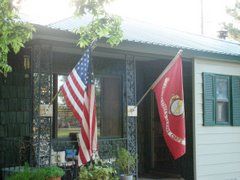
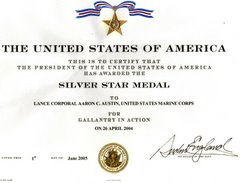
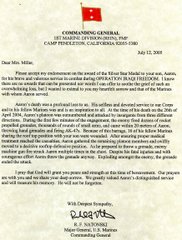
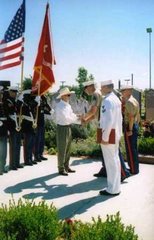


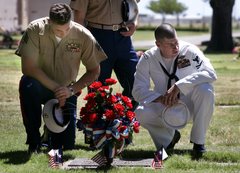

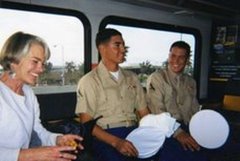

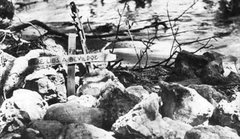


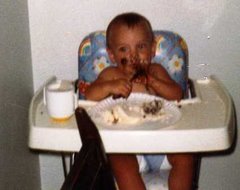


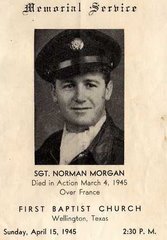
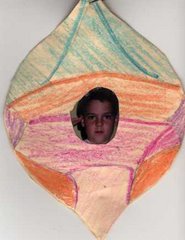

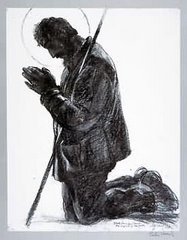
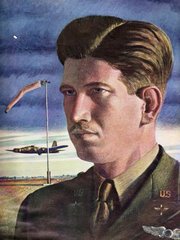
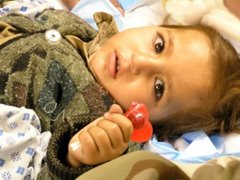
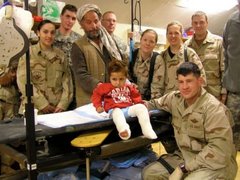


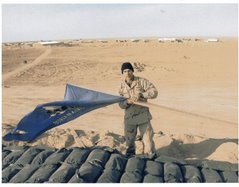


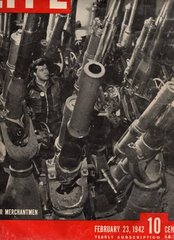
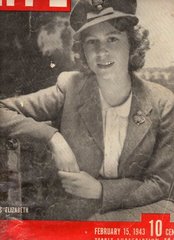

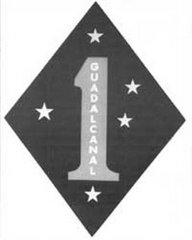
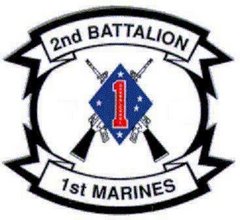


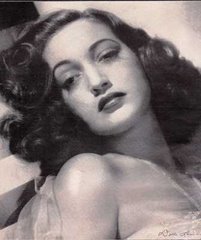

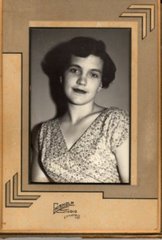

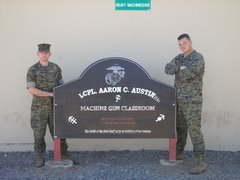

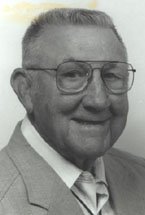

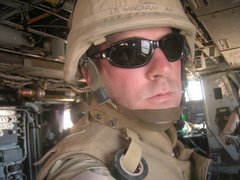
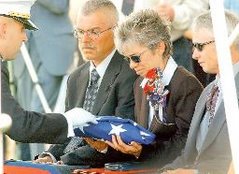


No comments:
Post a Comment